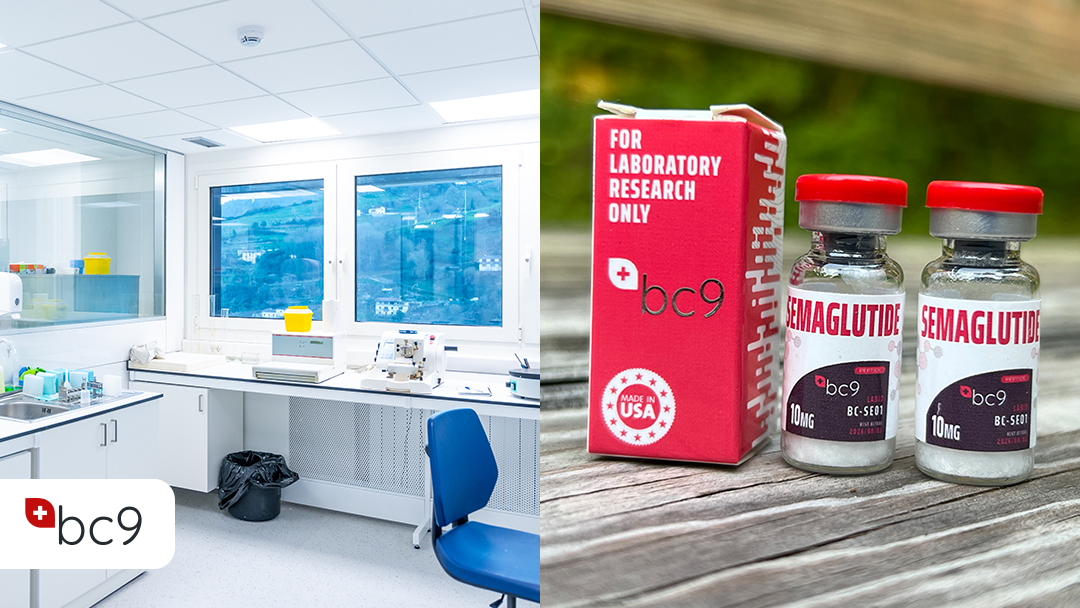
CJC-1295 and Weight Loss Research
We are becoming more inclined toward our physical appearance in a world built on how people perceive us and a society driven by social media. Unfortunately, there is no such thing as a quick fix. This has led researchers to explore novel approaches to potentially aid weight loss and muscle growth. This includes investigating hormones like CJC-1295. Is this a valuable potential option? Let’s consider some of the facts and research behind this hormone. What is CJC-1295? CJC-1295 is a synthetic analog of the growth hormone-releasing hormone (GHRH). GHRH stimulates the anterior pituitary to produce and release growth hormone (GH) into the bloodstream of subjects. GH, in turn, stimulates the secretion of insulin-like growth factor (IGF-1) from the liver. How Does CJC-1295 Work Research shows that CJC-1295 peptide injections have the potential to attach to a protein in the blood of subjects. This is called Albumin and it has the potential to boost growth hormone levels. A study found it may be effective in raising levels by 2 to 1 times. The same study showed it could potentially stimulate IGF-1 levels by 1.5 to 3 times in healthy subjects. It is to be noted that CJC-1295 may take about 1 to 4 hours to reach its highest levels in subjects. This means it may be much slower than conventional growth hormone boosters like Ipamorelin. However, CJC-1295 may potentially last much longer in the subjects. [R][R] This longer duration may be a result of the binding to Albumin. Albumin has a longer half-life in the body of test subjects. [R] Benefits of CJC-1295 CJC-1295 and GH Levels Research CJC-1295 and IGF-1 Research CJC-1295 and GH Deficiency Research CJC 1295 and Weight Loss Peptides Research Amplified Metabolism and Energy Findings Research shows that certain peptides may have the ability to signal the pituitary gland to release growth hormone. If this is to be proven it can potentially lead to increases in metabolism. This process might influence how nutrients are absorbed and digested. In future interventions, this could lead to sustained energy levels and reduced fatigue. [R] Decreased Body Fat & Increased Muscle Mass Findings If this research is to be proven, higher metabolism and increased muscle mass will be observed. This in turn may lead to body fat reduction during peptide therapy. A higher daily calorie intake will lead to improved muscle protein building aiding weight loss and a more defined muscular physique in subjects. Why Combine CJC and Ipamorelin in Peptide Therapy? Ipamorelin is closely related to CJC-1295. Ipamorelin is a pentapeptide, which also displays a high GH-releasing potential in vivo and in vitro studies. It is the first GHRP-receptor agonist with a selectivity for GH. The specificity of Ipamorelin makes this compound a very interesting candidate for future clinical development. CJC-1295 and Ipamorelin in their respective research may be effective for growth hormone production. This has led to them being studied synergistically. Growth hormone has the potential to reduce excess fat by blocking lipoprotein lipase (LPL). LPL releases fat from the bloodstream of subjects for storage in fat cells. It may also potentially aid in breaking down stored fat. [R] Frequently Asked Questions Can CJC-1295 aid in fat loss research? Yes, CJC-1295 can be relevant in fat loss research. Research has shown that CJC-1295 has the potential ability to stimulate human growth hormone. This makes it a potential candidate for research into fat loss. Particularly how it may influence metabolic rate, fat metabolism, and muscle maintenance. What is the difference between CJC-1295 and CJC-1295 With DAC? CJC-1295 With DAC is different as it includes an added drug affinity complex (DAC). This has the potential to extend the half-life of the compound in subjects. This also means it has the potential to last longer and have an improved ability to bond with protein compared to regular CJC-1295. Summary Peptide therapy has exploded in the research work for its potential future impact on overall health. It has the potential to aid muscle mass, fat metabolism, energy levels, and much more. This may be achieved as a result of its impact on the increased synthesis of growth hormones.


